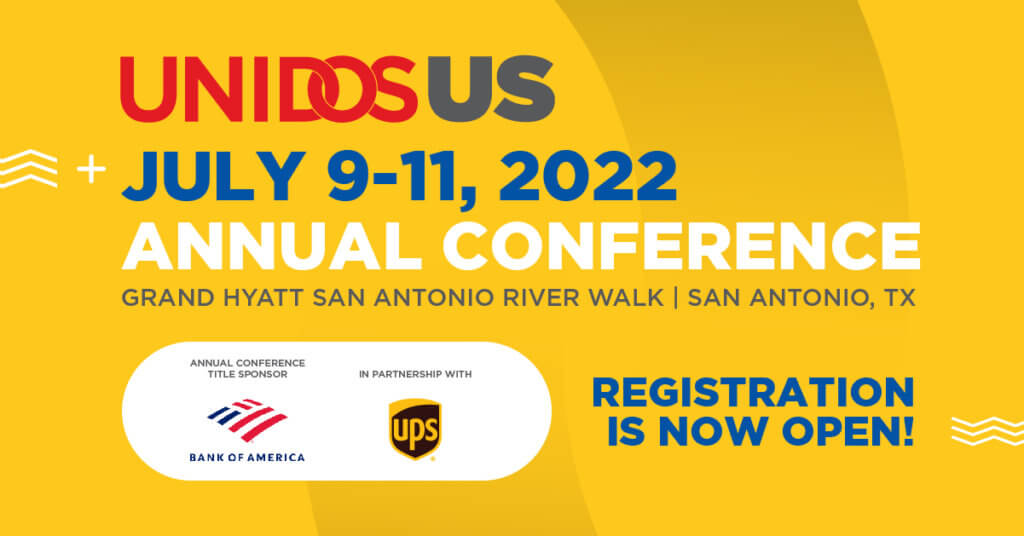Invisible no more: Making sure Latinos count in the 2020 Census
We are standing up unidos for the Latino community, and this includes speaking out about the importance of Census 2020. In the months ahead we will continue this work in partnership with our Affiliates—stay tuned to this space for more information.
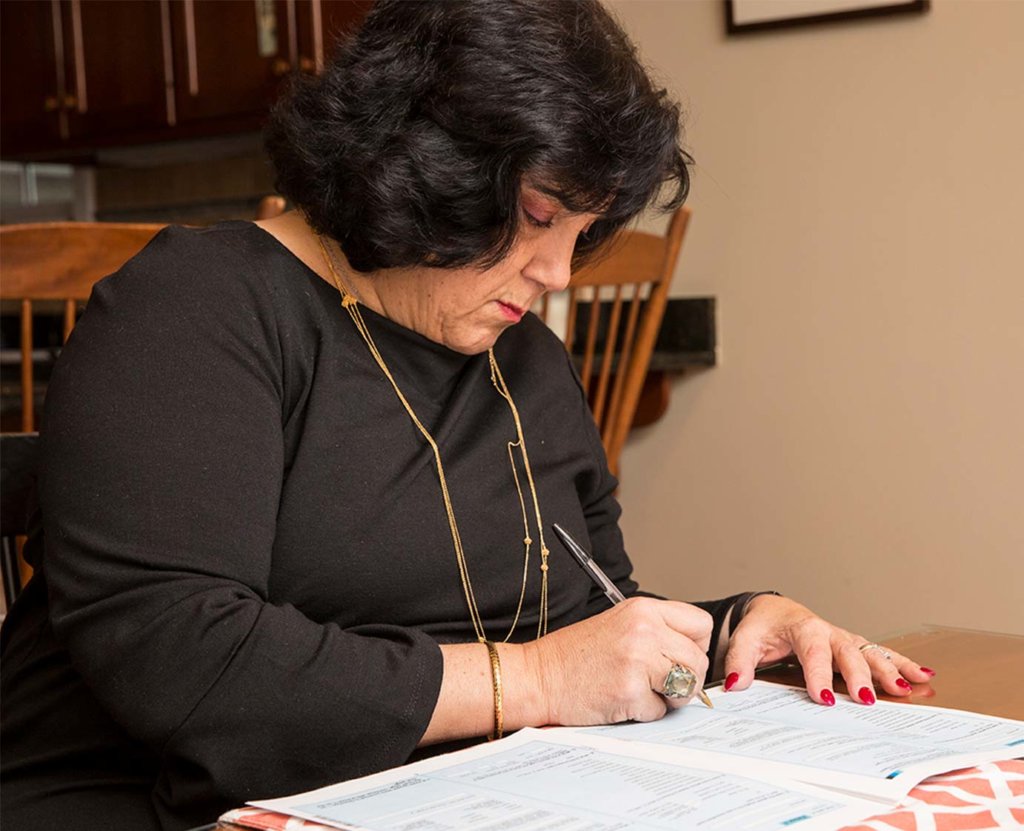
By Stephanie Presch, UnidosUS Content Specialist
At a workshop on the census at the 2019 UnidosUS Annual Conference, Clarissa Martinez de Castro, Deputy Vice President of Policy and Advocacy at UnidosUS, invited Isabel Rubio, Executive Director of the UnidosUS Affiliate Hispanic Interest Coalition of Alabama (¡HICA!), to share the work that her organization is doing to make sure that every Alabaman is counted in the 2020 Census.
Keep up with the latest from UnidosUS
Sign up for the weekly UnidosUS Action Network newsletter delivered every Thursday.
As one of only three Latino organizations in the entire state, they worked to create their Alabama Hard to Count Collaborative in early 2019.
“We don’t have a deep bench of Latino orgs to work with,” Rubio explained, and ¡HICA! itself works with 3,500 families a year. Even so, ¡HICA! has collaborated across communities, forming partnerships with the Black Belt Community Foundation, and with the Asian and Pacific Islander community in Alabama.
An added challenge is that many areas of Alabama are very rural, and connectivity is a real issue, especially this year as the Census is expected to be “digital first.”
But help has come from an unexpected place. For example, Alabama Power Company opened their facilities to ¡HICA! so that people can go there to fill out the Census.
Organizations like ¡HICA! are going to be key as we get closer to 2020. While we previously covered the significance of the 2020 Census at the 2018 UnidosUS Annual Conference and explored how the potential inclusion of a citizenship question could lead to an undercount of our community and the potential ramifications, at this year’s Conference, more basic questions about how we’re going to engage our community, ensure that they participate, and make their voices heard were on the table.
“In 2020, we’re looking at a year where engagement with our community is going to have to take place in many different dimensions,” said Martinez de Castro.
VIEW THE FULL SESSION BELOW:
Next year’s Census has been fraught with uncertainty since the Trump administration has taken steps to try and put the citizenship question on the questionnaire despite opposition from the courts.
At #UnidosUS19, we’re getting ready to #GetOutTheCount for #Census2020! Our panel shares how to help ensure a true count of everyone in the US, especially those in hard to count communities. pic.twitter.com/vmA1zniVC4
— UnidosUS (@WeAreUnidosUS) August 3, 2019
“The tactic is to seed uncertainty, fear, or disillusionment so that we ourselves decide not to get counted and to diminish our own voice,” Martinez de Castro explained. “The community needs assurance and also needs tools to be able to get counted.”
Even in the best of circumstances, some populations have been undercounted in previous decades, on account of factors such as poverty, mobility, rural status, or linguistic barriers. In 2020, perhaps more than ever before, we need to redress this undercount through rigorous outreach and education to our communities across the country.
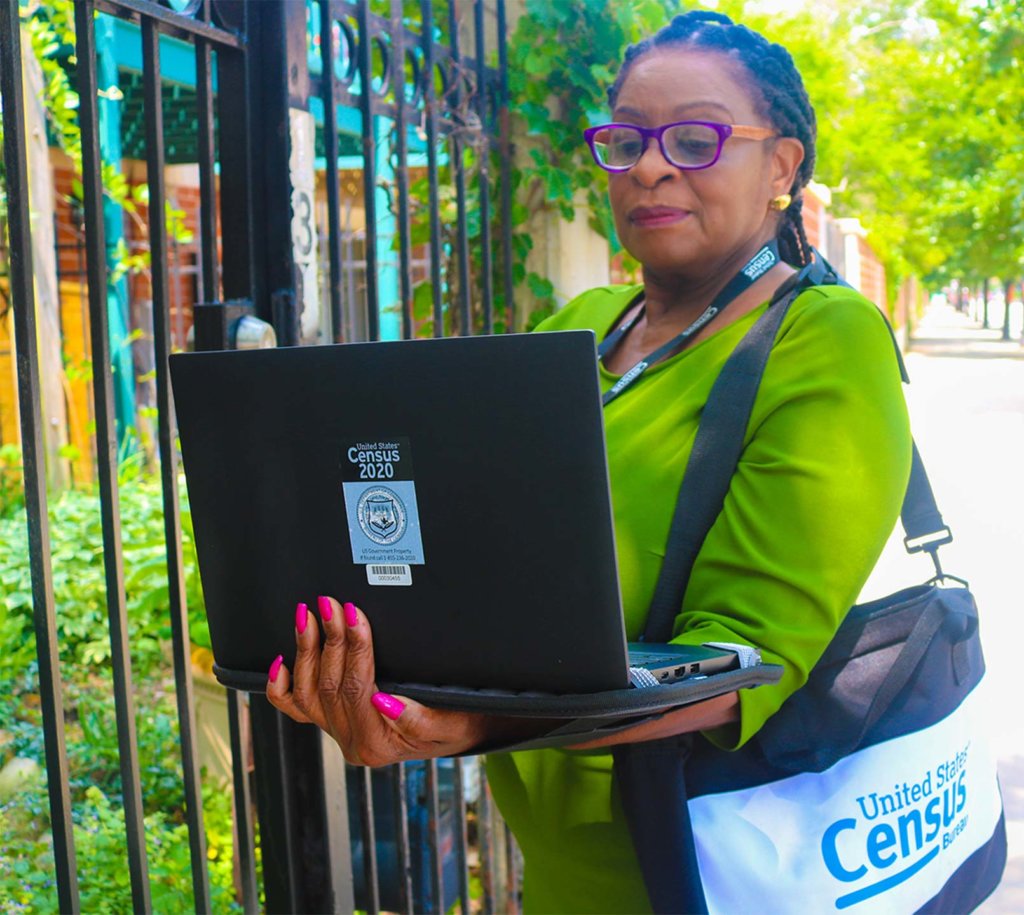
Beyond a “count of all persons”
Diali Avila, Senior Coalition Manager at the Leadership Conference Education Fund, explained that the Census has multiple uses beyond just acting as a “count of all persons.” The Census helps company executives decide where to build new factories and headquarters. It provides funding for 22 million children to receive free or reduced-price lunches. It also provides funding for the 25 million patients who rely on community health centers for health care, and the data influences where those centers might be. Additionally, the Census data also influences the distribution of grants for the 900,000 children that rely on Head Start for early childhood education. And, decennial census data are also used to determine congressional seats, draw voting districts, and protect civil rights—all functions vital to our democracy.
As leaders in our community, UnidosUS, its Affiliates, and sister organizations, have an opportunity to try and reach everyone who is traditionally hard to count. People of color, low-income households, young Black and Latino children (between ages 0 and 4), limited English proficient people, single mothers, and renters, are among those groups that are undercounted within the Census.
The ongoing drama around the Trump administration’s desire to include a citizenship question is also likely to have a negative impact. “Six million people will likely not turn in the form because of the citizenship question,” Avila explained.
“Addressing the concerns right away is one of the best strategies for delivering information to communities of color,” said Maria Faini, Narrative Impact Analyst at Race Forward.
Faini outlined several of the concerns that are top of mind for Latinos in particular—namely the fear that the Census Bureau may be colluding with Immigration and Customs Enforcement, but also the fear of racial profiling, and online security risks with a digital Census.
However, Faini also explained that there are numerous messages that were effective across all ethnicities. The most significant were those that emphasized how being counted affects funding for public services—in particular, funding for public schools, hospitals, fire and police departments, roads and highways—in addition to enforcement of civil rights.
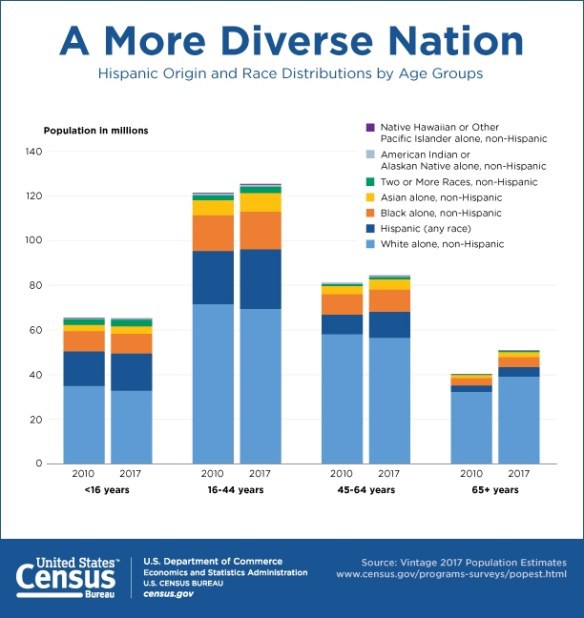
An obligation to get involved
“I, like many people, do fear how this data will be used,” Josie Bacallao, President and CEO of UnidosUS Affiliate Hispanic Unity of Florida admitted.
However, Hispanic Unity also saw it as their obligation to get involved with the Census effort in their local community.
“If we were not involved, the very people that we were trying to protect would not get the resources that they need,” Bacallao added.
Bacallao explained that while the Urban Institute has estimated an undercount of the general population of between 900,000 and four million people (or 0.27% to 1.22% of the population), this percentage jumps to between 3.68% and 3.57% for Blacks and Latinos.
“Undercount is very real,” Bacallao adds, “if we don’t get involved as organizations, we will not have the money and we will not have the power.”
Bacallao also spoke to the importance of meeting Latinos where they are, but like Faini, explained that it is necessary to craft messages that emphasize the importance of the census in a way that makes sense to members of our community.
To that end, she gave the example of SNAP. “If you’re speaking to someone about food, talk about how those dollars for SNAP may go away,” Bacallao said.
She added that her organization has been involved in a complete count committee and is working on creating plans to do outreach to vulnerable groups—like Latinos—in their community. In addition to reaching out to local media and elected officials—Bacallao in particular singled out Univision affiliates as useful contacts—her organization has also linked their census outreach efforts with their voter registration work.
“One of the things that we’ve discovered in doing this work is that it actually opens up a lot of opportunities,” Bacallao added.
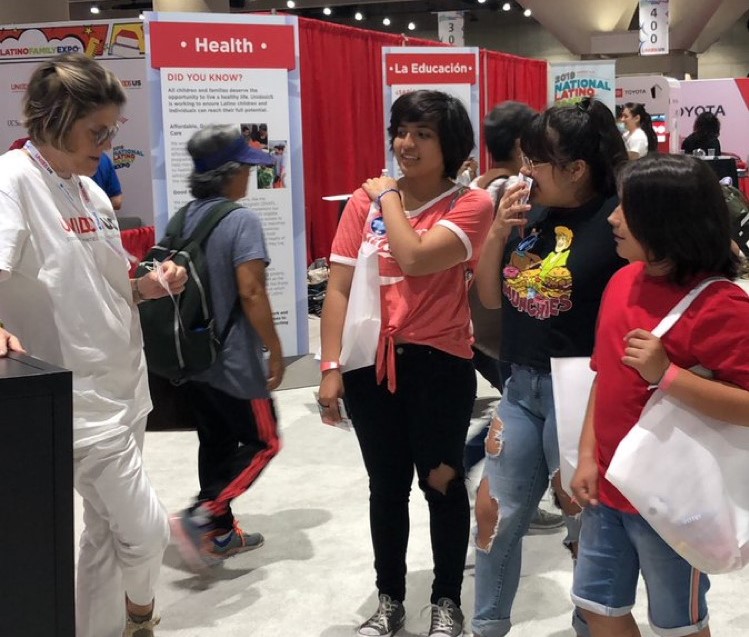
Meeting people where they are
While the panel discussed potential messaging tactics, Nancy Maldonado, President and CEO of UnidosUS Affiliate The Chicano Federation, highlighted potential messengers and partners that are already in place.
“Within each of these communities, there’s already natural leaders that we need to connect with,” Maldonado explained, using the example of empowering teachers with information about the census so that their students in turn would be able to talk about completing the form with their families.
Additionally, Maldonado stressed the importance of being as available as possible for members of our community. She explained that The Chicano Federation has partnered with another UnidosUS Affiliate to meet people at clinics. Folding census outreach and education into existing health, education, church, athletic, cultural and other community-based events will be crucial within the next months.
“How can we meet people where they are?” she prompted the audience. Moments later, members of the audience were asked to share their observations around the three central issues in the workshop—how to encourage a response to a “digital first” census, how to foster partnerships and trusted messengers, and how to engage children and youth. Affiliates, partners, and young leaders all shared strategies for how to move the conversation forward.
In the next few months, we will be hosting a webinar, and launching a blog series and webpage as a follow-up to the topics covered in the workshop, and to help keep our Affiliates and partners informed with important information about the census.
Additionally, like our Affiliates, sister organizations like the National Association of Latino Elected and Appointed Officials, are working hard to ensure that our community is informed. 2020 will be critical for Latinos—both the elections and the Census will affect our community for years to come. We must work hard to engage our community and ensure that they are invisible no more.

